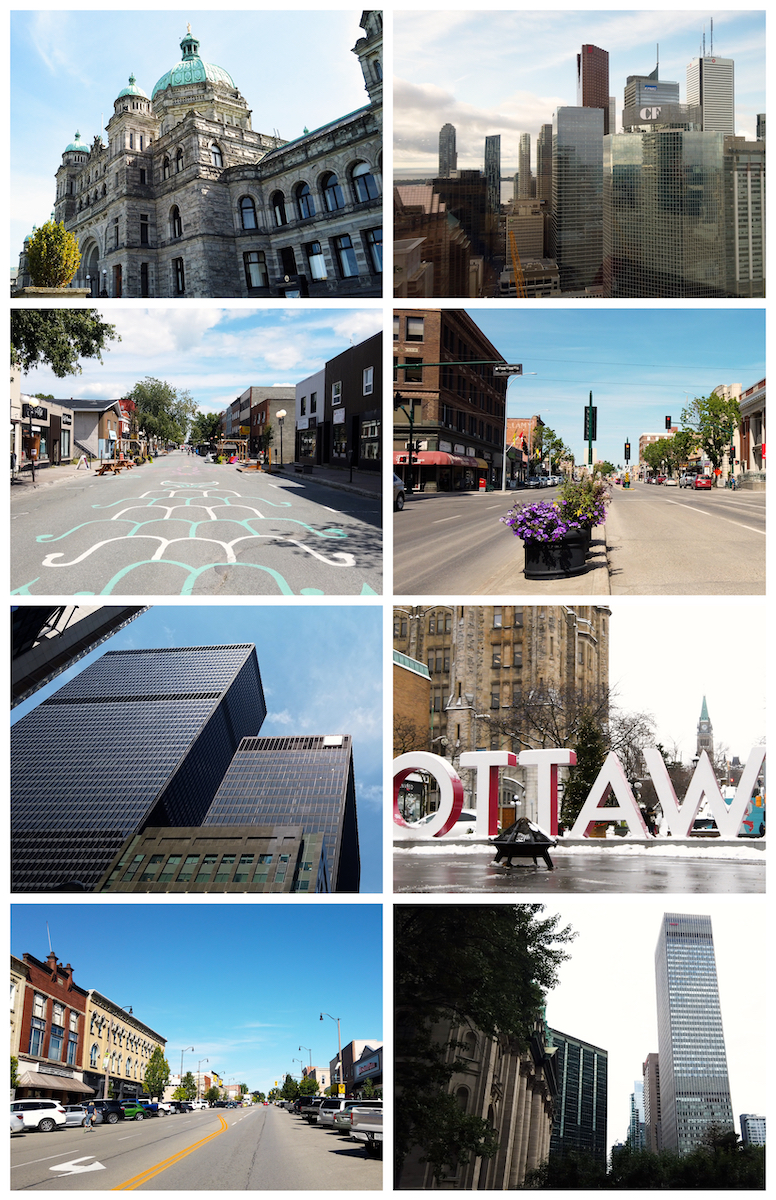The Context of it All
Chapter Two
“I am increasingly concerned about the fragility of democracy in the current global context.”
 Janet Austin was the Lieutenant Governor of British Columbia and the former executive director of the YWCA.
Janet Austin was the Lieutenant Governor of British Columbia and the former executive director of the YWCA.
Janet’s fear is rooted in her unique perspective. Having grown up in Alberta and now forging a life on the west coast, Janet understands how our cultural context – at home and abroad – has been amplified by divisiveness, entrenching polarization that now threatens democracy.
“It has led to the rise of populism around the world. While Canada, I think, enjoys a measure of stability that is not enjoyed by many of the countries around the world, I believe that we need to value and nurture (democracy). We cannot take it for granted.”
How did we get here? Why are we becoming so divided? We asked pollster Shachi Kurl.
“You kind of have to ask the question: were we ever united? I think the thing that has changed in the last several years – call it polarization, or call it just the surfacing of a lot of discorded views – people in the past might not have been as comfortable in saying, ‘you know, I don’t really agree’, because we’re all Canadian and we like to be nice.”
And we do love our reputation as non-offending Canadians.
“That is something that we still express and desire to be. We don’t like to offend as a nation, but at the same time, we’re sort of tired of what is increasingly called virtue signalling on different issues. So, the idea that everybody agrees that climate change is a problem? I mean, yes and no. We don’t all necessarily agree on what’s causing it. And, so, if you’re a member of the environmental movement, if you are someone who’s really working to find policy – guess what? You’re not preaching to a choir that’s necessarily all hearing your song.”
Which is important to understand. Increasingly we’re convinced that our view is the view shared by the near-majority of the country, but that just isn’t the case, as Shachi explains.
“Age is a huge driver of what you think. Whether it’s what you feel about immigration; whether it’s your view on what makes a family. Do you have to be defined by blood to be part of a family, or is a family your neighbours, your dog and your best friend from university? We have very, very different views on that. We have different views on things like bilingualism, on economic realities.”
 Shachi continues, “If you ask a 55-year-old male in Alberta what the top issue is today, he may say ethics, or he may say the pipeline issue. If you ask an 18-year-old woman in Toronto or Vancouver what the top issue is, it’s 100% affordability. You ask an older woman, it’s most likely to be healthcare. Because people are very keyed into the things that they are in the most proximity to.
Shachi continues, “If you ask a 55-year-old male in Alberta what the top issue is today, he may say ethics, or he may say the pipeline issue. If you ask an 18-year-old woman in Toronto or Vancouver what the top issue is, it’s 100% affordability. You ask an older woman, it’s most likely to be healthcare. Because people are very keyed into the things that they are in the most proximity to.
“If your life is spending an hour and a half on transit and living in some basement suite that you hate, but you can’t afford to move out of it, that is the top issue in your life. If you are a member of the sandwich generation and you’re caring for kids and your older parents, yeah, healthcare is a pretty big driver for you. And again, if you’re an investor in the oil patch, or you’re working in the oil patch, you’re worried about job loss, changing technology. People are very tied to those fortunes.”
Josh Hall agrees.
“Alberta wants this pipeline so bad, and they believe in it with so much conviction. And in BC? The people there believe, with equal conviction, the absolute opposite of what people believe here in Alberta. So how do you possibly expect people to come to some kind of compromise? It almost seems impossible.”
Josh is a journalist in the mid-sized town of Red Deer, Alberta with a passion for telling the stories that matter at the intersection of people and nature.
“Here it’s obviously very divisive with all the talk about the oil industry, and Alberta vs BC.”
Josh has covered stories from big cities, like Vancouver, to small towns, like 100 Mile House, and he tells us, “Oil is extremely important to people here in Alberta and people in BC want to protect the ocean and all the wildlife that’s on the way from here to the ocean. And that’s completely valid.”
We shouldn’t be surprised to hear that a diverse population with diverse histories and experiences holds diverse perspectives on the future of our nation. But, at the same time, we must realize diverse views can quickly lead to divisive debate, as Josh argues.
“So many people just don’t want to hear (the other side). They don’t have the energy or the effort to have their minds changed. They don’t want it to be changed, so they don’t listen. And that’s what you have to do; you have to listen.”
And it’s for that reason that long-serving BC Lieutenant Governor Janet Austin argues, “in order to move forward, we do need be able to move toward compromises on some things. We can’t expect change overnight.”
And yet we do want change overnight because we’re frustrated by the lack of momentum on the issues important to us. And that’s why pollster Shachi Kurl points out that our frustration levels are inflated by those who seek to manipulate our emotions.
“When you see the fake news that’s propagated. When you see politicians willingly skating the line of untruth, rather than having those bigger conversations, yeah, no wonder we don’t trust our politicians. No wonder we don’t trust government. No wonder we don’t trust media. And when you look at young people and Millenials, versus Generation X and the baby boomers, those levels of trust are just not there. They are a generation that is completely sick of the establishment and the political class.”
 The solution? Janet Austin says, “I think it’s education, so that they are able to assume constructive roles and meaningful roles in an economy that’s shifting. But, also, education that I would characterize as economic and political literacy, to help them to understand the complexity of the issues that they face.”
The solution? Janet Austin says, “I think it’s education, so that they are able to assume constructive roles and meaningful roles in an economy that’s shifting. But, also, education that I would characterize as economic and political literacy, to help them to understand the complexity of the issues that they face.”
To understand that context, it’s why this class matters. But it’s also why your classmate matters, as journalist Josh Hall explains.
“Definitely reach out to somebody else who might have a different opinion than you, whether they’re a province away or in the same class as you. There’s definitely going to be somebody there who thinks completely differently.”
Janet Austin agrees.
“As a person, it’s always been important to me to try to engage with people who have views that are different than mine, and to put myself in the position where I’m seeking to understand different points of view.”
Indeed, speaking to those with different backgrounds and different perspectives is not only how Sandra Odendahl went from up-and-coming scientist to industry engineer to sustainability champion to financial executive, it’s also how Sandra gained the context needed to solve problems at the intersection of people and nature.
And Sandra believes everyone needs to walk a mile in the shoes of others.
 “People talking about aboriginal communities who’ve never been to one, or seen one with their feet on the ground? People who have never been to the north, who have never been to the oil sands, but saw it on a video? There’s a lot of benefit to actually getting people out into nature and to other parts of the country.”
“People talking about aboriginal communities who’ve never been to one, or seen one with their feet on the ground? People who have never been to the north, who have never been to the oil sands, but saw it on a video? There’s a lot of benefit to actually getting people out into nature and to other parts of the country.”
By creating a generational understanding of the context of our peers in different corners of this land, Sandra believes it will give all of us a “better understanding of the country, a better understanding of nature. It will give us the ability to contribute to conversations about where we go as a nation. And it’s a lot easier to have those conversations if you’ve actually been to the places under discussion.”
So, yeah, all of what we’ve covered here is critical context that we must understand. It’s also why context matters when trying to understand any issue.
And only when we all bother to understand our nation’s varied context we will move beyond French-versus-English, west-versus-east, rural-versus-urban and people-versus-nature to a place where we can advance ideas that ensure both animals and people will continue to make a living on the land we call home, no matter where we call home, for generations to come.